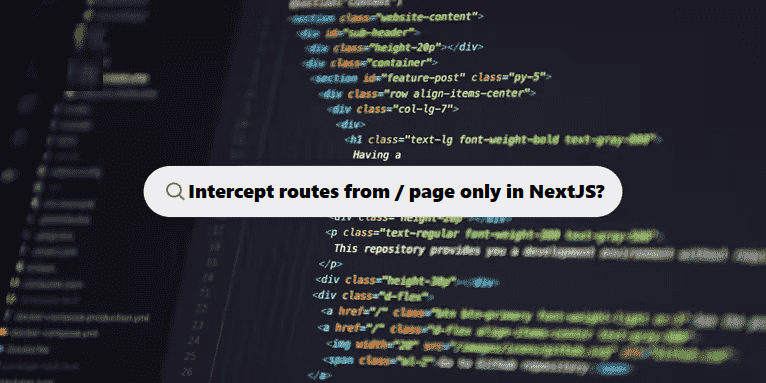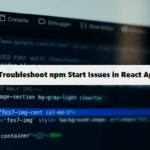In Next.js, if you want to intercept the /portfolio/project/[slug] route only when navigating from the main page (/), you can achieve this by using a combination of the useRouter hook and a custom event listener. Here’s a step-by-step approach:
1. Use the useRouter Hook
You can use the useRouter hook to access the router and listen for route changes. Then, you can check the previous route before intercepting.
2. Implement Route Interception
Here’s how to implement it:
Example Code
#jsx #react
import { useEffect } from 'react';
import { useRouter } from 'next/router';
const YourComponent = () => {
const router = useRouter();
useEffect(() => {
const handleRouteChange = (url) => {
// Check if the previous path was '/'
if (url.startsWith('/portfolio/project/') && document.referrer.endsWith('/')) {
// Intercept and show the dialog
openDialog(); // Your function to open the dialog
}
};
router.events.on('routeChangeStart', handleRouteChange);
return () => {
router.events.off('routeChangeStart', handleRouteChange);
};
}, [router.events]);
const openDialog = () => {
// Logic to open your dialog
console.log('Dialog opened');
};
return (
<div>
{/* Your component content */}
</div>
);
};
export default YourComponent;
How it works:
- Router Hook:
useRouter()allows you to access the router instance. - Event Listener: Inside the
useEffect, you set up an event listener forrouteChangeStart, which triggers when the route changes. - Checking the Referrer:
- You check if the new URL starts with
/portfolio/project/and if the document’s referrer ends with/(indicating the user came from the main page). - This ensures that the dialog only opens when navigating from the main page.
- You check if the new URL starts with
- Cleanup: The return function in the
useEffectcleans up the event listener when the component unmounts.
Note:
This approach allows you to intercept the desired route only when coming from the main page, avoiding unwanted interceptions when navigating from other routes. Adjust the openDialog function to fit your specific dialog logic.
Using Coding Filters to Streamline Your Development Process!
Incorporating coding filters into your development workflow can streamline processes and reduce redundancy. By filtering out irrelevant data or actions, developers can concentrate on the essential parts of their code, leading to more efficient and less error-prone applications.




